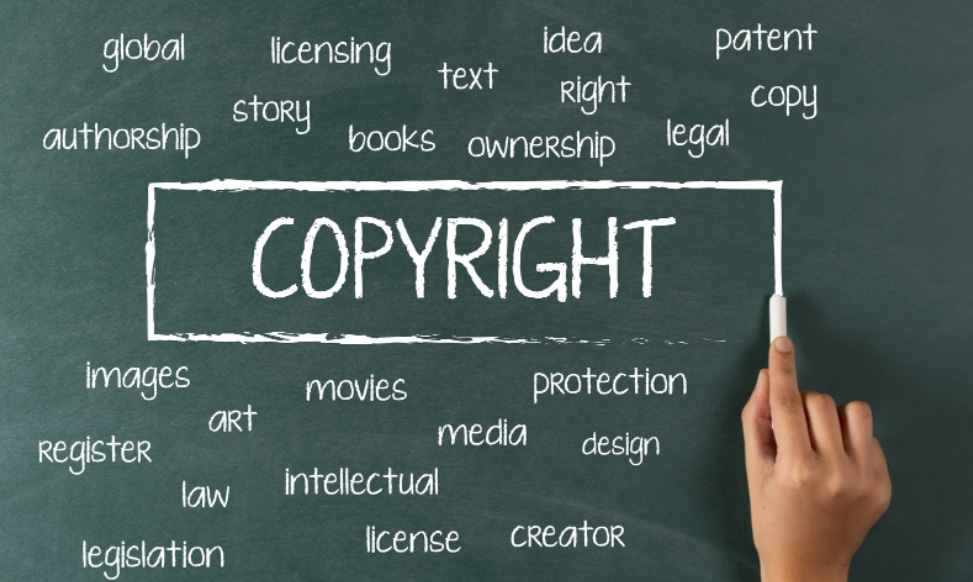A copyright gives the creator of an original work exclusive rights to the use, distribution, and creation of that work. For example, authors, musicians, and filmmakers have copyrights on their original written works, recorded music, and films respectively. Copyright law protects those who create from being exploited by others without their permission. Discover what is a copyright and copyright infringement, and how you can protect your work.
What Is A Copyright?
The duration of copyright protection is determined by when the work was created. After January 1, 1978, all copyright protection will last the life of the author plus seventy years after his or her death. If a work is joint, copyright protection lasts for seventy years after the death of the last surviving author.
If a work is made for hire or if it is published anonymously or with a pseudonym, copyright protection lasts for 95 years after publication or 120 years after its creation, whichever is shorter. Artwork made before 1978 has a different timeline.
Copyrights are a type of intellectual property, created as soon as an author fixes the work in a tangible form of expression. Copyright law covers lots of different types of works including paintings, photographs, and illustrations, music compositions, sound recordings, computer programs, books, poems, blog posts, movies, non-fungible token (NFT) art, and much more.

What Is Copyright Infringement
Before discussing what copyright protects, it’s important to understand what copyright infringement is. In other words, when is it legal to use copyrighted material, and when does one run afoul of the law?
The short answer: If you’re a professional author or musician (or own a publishing or recording company), then you have permission to use copyrighted material for free as long as you give credit where credit is due.
However, if you’re not a professional writer/musician/publisher, then do not use any copyrighted work without permission from its owner! This applies equally to photographs and videos; so remember that no matter how innocent your intentions are (and they will be innocent—you would never do anything illegal!), stealing is still stealing.
What Can You Protect
Copyrights protect original works of authorship. That means that you can only claim copyright over something if it’s new, it’s yours (you haven’t copied someone else’s work), and it fits one of the categories below. For example, let’s say you write a song about your feelings on global warming.
Unless someone else wrote another song about their feelings on global warming first, then protected their work, you have exclusive rights to sing your song as long as it was new when you wrote it.
Here are some examples of rights that copyrights offer:
Create copies or phonorecords of the work.
- Create derivatives of the work.
- Distribute copies or phonorecords of the work to the public by way of sale, rental, lease, or lending.
- Play the song for everyone or, for example, recite the words in front of the public if it is a literary, musical, dramatic, or choreographic work; a pantomime; or a movie or TV show.
- Perform or give your work publicly if it is a literary, musical, dramatic, or choreographic work; a pantomime; or an art display. This right extends to single images within a book, movie, or other audiovisual work.
It also grants to the copyright owner the right to authorize others to exercise these exclusive rights, subject to statutory limitations.
How Do You Apply For Protection
First, you need to determine if you’re eligible for protection. To do that, ask yourself these questions:
Is my work fixed in a tangible medium of expression (for example, am I writing it down on paper or typing it into a computer)?
Do I have any legal rights in my work because of U.S. law (have I signed an employment contract granting me ownership over what I write for my job, for example)?
If you can answer yes to both questions, then you are most likely eligible for protection. If not, we suggest contacting an attorney familiar with intellectual property law to help advise you about the next steps for protecting your work.
A copyright is created automatically in any original work of authorship the moment it is fixed in a tangible form, but an owner can take additional steps to protect the copyright. The most important of these is to register the work.
You do not have to register your work, but in the United States, registration (or the refusal to register) is necessary to enforce the rights of holders through litigation. Through the registration of the information in a timely manner, copyright owners can earn the ability to ask for certain monetary damages and attorneys’ fees, in addition to verifying the information listed on the certificate.
The main benefits of copyright registration are in its facilitating of the licensing marketplace and the provision of notice to the public that someone is claiming copyright protection. It also acts as a record of this nation’s creativity.
You can only register copyright claims in the United States with the Copyright Office.
The Bottomline About Copyright
The more you put yourself out there and make your work available, the less you’ll have to worry about plagiarism (and lawsuits). If you write a song but never play it in public, chances are no one will notice or care. But if that same song becomes a hit, suddenly other people want to record it and/or use it in their own work. It’s important to protect yourself from copyright infringement.
That’s when copyright comes into play—and that’s why having a registered copyright is so important. Copyright exists automatically when you create an original work of authorship, but registering it makes it easier for you to enforce your rights if they are infringed upon later on.





